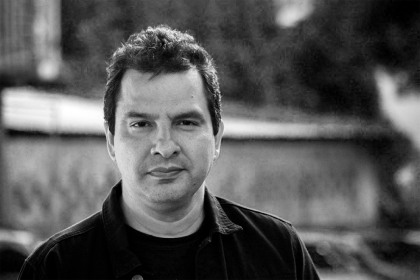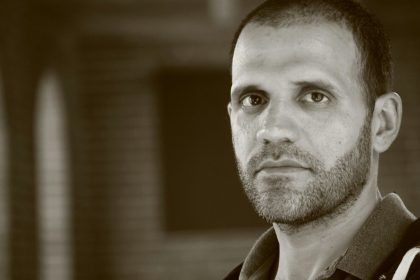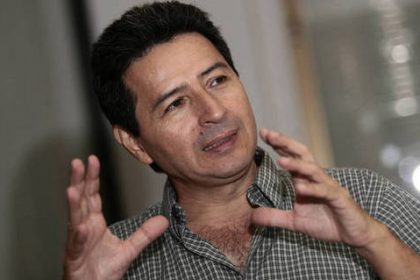ABOUT THE AUTHOR:

Calixto Ävila
Specialist Lawyer in Human Rights and Master in Public International Law. Provea representative in Europe.
Calixto Ávila │ In the early morning of January 20, 2020, when the then Vice President of the de facto government, Mrs. Delcy Rodríguez, arrived at Madrid Barajas airport and met with a Spanish cabinet minister, one of the most publicized political and diplomatic incidents in Spain at that time took shape. A debate was opened in Madrid and the European Parliament in Brussels on whether the “admission restrictions” to the territory of the member countries of the European Union (EU) applicable to persons accused of being “responsible for serious human rights violations or abuses” or “whose actions, policies or activities otherwise undermine democracy or the rule of law in Venezuela”, provided for in article 6 Decision (CFSP) 2017/2074 of the Council of the European Union.
As a matter of fact, Mr. Josep Borrell, High Representative of the EU, clarified at the European Parliament that it was up to the EU Member States, in this case, Spain, to determine whether or not the European sanctions had been violated. In other words, it was up to the 27 members of the European Union to determine if any of the 25 individuals with high public positions in the Venezuelan State sanctioned up to that moment had entered their territory in violation of the admission restrictions. Later, on June 29, the EU Council raised the total number of Venezuelan officials subject to sanctions to 36. This originated a second diplomatic incident that led to the short-lived order to expel the EU ambassador that was reversed less than 72 hours after Maduro announced it. Not only did the ambassador stay in Caracas, but the list of 36 sanctioned persons was left unchanged.
One wonders why the Maduro government lowers the tone and hardly mentions European sanctions, especially in the context of the current visit to the country of the UN Rapporteur on sanctions. It should be noted that behind these sanctions are the sovereign powers of 27 member states that must enforce them, as well as the most solid and powerful regional organization of states on the planet, which may explain the attitude of that government. In fact, the EU maintained its tone on sanctions in the latest conclusions of the EU Council on Venezuela on January 25 by reiterating that “In view of the deteriorating situation of human rights, rule of law and democracy in Venezuela, the EU stands ready to adopt additional targeted restrictive measures against those undermining democracy or the rule of law and those responsible for serious violations of human rights. These measures are designed not to harm the Venezuelan population and can be reversed.”
Unlike the unilateral sectoral sanctions imposed by the United States of America, whose international legality is questionable, the sanctions of the European Union have a legal framework subject to European and international law, and to legal controls within 27 democratic States and the European institutions, including the European Court of Human Rights and the Court of Justice of the EU. Since the 1990s, the European Union has applied sanctions to third countries for serious human rights violations, including China, Belarus, Iran, Burundi and, since 2017, Venezuela.
However, the implementation of these sanctions by the EU did not have a unified legal regime at that time, and for this reason, after lengthy negotiations, the bloc adopted the “Council Regulation 2020/1998 of 7 December 2020 concerning restrictive measures against serious human rights violations and abuses”, considered by many as the“ European Magnitsky law ”due to its resemblance to the Magnitsky Act and the Global Magnitsky Act of the United States of America. A few months earlier, Joseph Borrell had insisted that the EU needed “a global regime to gain more flexibility to go after the perpetrators regardless of where they are and dispenses us from having to set up a specific legal framework each time for each specific case. With the new sanctions regime, we will be able to proceed quicker and to be more efficient.”
Indeed, Regulation 2020/1998 has institutionally strengthened the European sanctions mechanism. In other words, the next time that one of the Venezuelan officials included in the list of sanctioned individuals sets foot in one of the 27 EU countries, the procedure to follow in the face of these infractions of bloc regulations will be even explicit. That is why the EU’s announcement, on January 25, that it is willing to adopt new individual sanctions against “those undermining democracy or the rule of law and those responsible for serious violations of human rights” in Venezuela, now has many more repercussions as a mechanism of pressure on the de facto government. It is very important to note that the 36 sanctioned officials have also seen their assets frozen, including bank accounts in European financial or credit institutions. The same Regulation 2020/1998 has also outlined in detail these individual economic sanctions.
On the other hand, apart from individual sanctions, since November 2017, the EU has imposed on Venezuela an embargo on arms and equipment intended for internal repression. These measures, like sanctions on individuals, “aim to encourage democratic shared solutions so as to bring political stability to the country and address the pressing needs of Venezuelans.” For this reason, the latest conclusions of the EU Council on January 25 preceded the February 2 statement of the International Contact Group, giving greater weight to the sanctions adopted by the EU in support of the efforts of this group that seeks to open spaces for the political negotiation of the crisis. Effectively, sanctions on individuals come into play in a negotiation process since “they can be reversed.”
The difference in the response of the de facto government to the different international sanctions that have been imposed on it is evident. While it instrumentalizes with great fanfare the sectoral economic sanctions imposed by the United States to play the victim, dodge its responsibilities in the humanitarian emergency and try to recover some internal and external legitimacy, it barely whispers its dissatisfaction with the individual sanctions against State officials. The de facto government prefers to ignore a debate that is based on individual responsibilities for serious human rights violations and the dismantling of the rule of law and democracy in Venezuela. Even more so when 113 individuals sanctioned by the United States Department of the Treasury are added to the group of 36 sanctioned by the EU. The fact is that one thing is to speak of the responsibility of the Venezuelan State and quite another to speak of the responsibilities of specific individuals.
At the limit of the analysis, the individual sanctions in the Venezuelan case play alongside two other important processes: the Preliminary Examination Venezuela I of the ICC Prosecutor’s Office, which will be concluded in June, and the investigation carried out by the United Nations Fact-Finding Mission. These two processes and the set of individual sanctions agree on a transcendental common element: individual criminal responsibilities for international crimes. Indeed, it is very significant that Article 2 of the EU Regulation 2020/1998 provides that the sanctions apply to those responsible for international crimes such as genocide and crimes against humanity, and those responsible for serious human rights violations or abuses such as torture and other cruel, inhuman or degrading treatment or punishment; slavery; extrajudicial, summary or arbitrary executions and killings; enforced disappearance of persons; arbitrary arrests or detentions; widespread or systematic violations or abuses; trafficking in human beings and abuses of human rights by migrant smugglers; sexual and gender-based violence; violations or abuses of freedom to peaceful assembly and of association; violations or abuses of freedom of opinion and expression, and violations or abuses of freedom of religion or belief.
What has been said in this last paragraph is perhaps one of the best illustrations of the principle of communicating vessels in international law: international concepts and institutions communicate and nourish each other. To the misfortune of the perpetrators, international crimes such as crimes against humanity and many of the serious violations of human rights, in addition to not expiring, have gone through an enormous conceptual and institutional development in recent decades. Those who today exercise absolute power, after the closure of democratic spaces and the dismantling of the rule of law in Venezuela, have sufficient reasons to refrain from committing new international crimes, and this not only because of the individual sanctions they have received or may receive in the future. Ultimately, sanctions on individuals are just the tip of the iceberg.
Translated by José Rafael Medina
ABOUT THE AUTHOR:

Calixto Ävila
Specialist Lawyer in Human Rights and Master in Public International Law. Provea representative in Europe.





